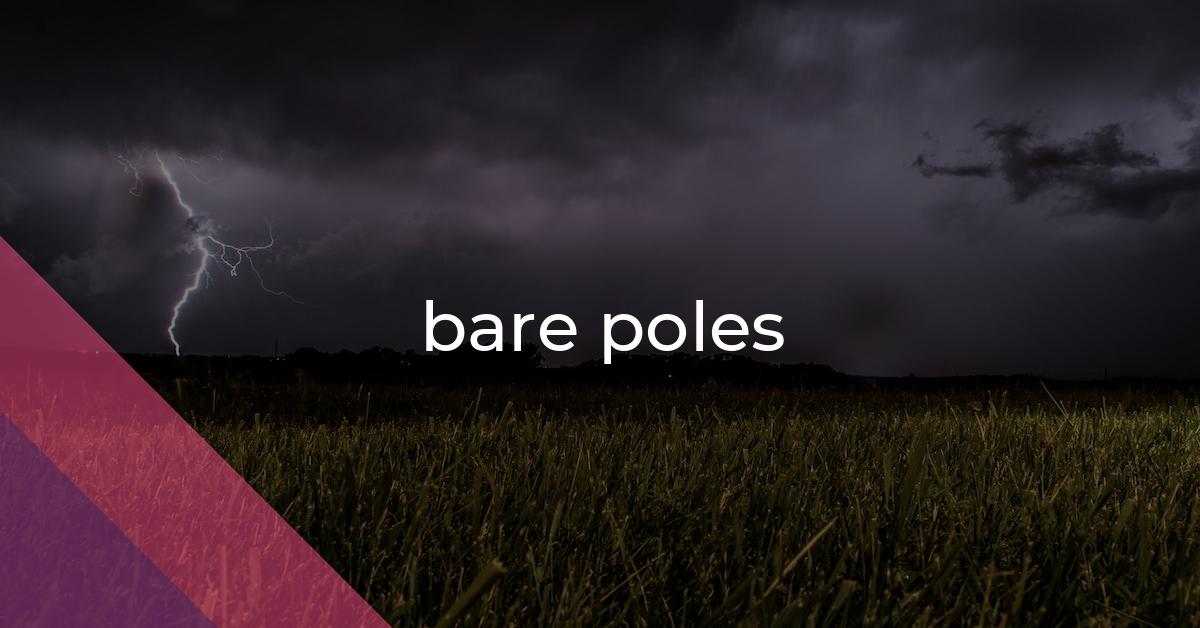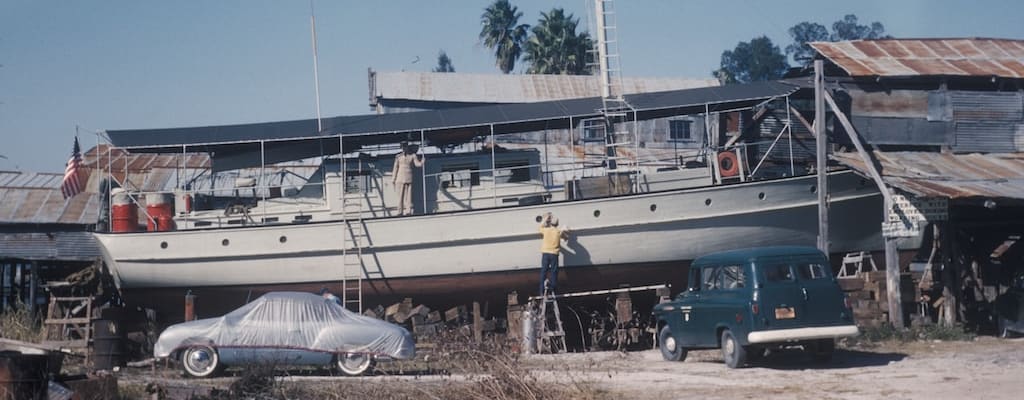bare poles: Idiom Meaning and Origin
What does ‘bare poles’ mean?
The idiom "bare poles" means completely exposed or naked, often used to describe a ship with all its sails down. It signifies vulnerability, lack of protection, or being unprepared.

Idiom Explorer
"In the raw" means in a natural or unprocessed state, without any refinements or alterations. It can also refer to being naked or exposed without any cover or protection.
The idiom "in the nip" means to be naked or without any clothes.
The idiom "in the buff" means being completely naked, without any clothing on.
"In the altogether" is an idiom meaning to be completely naked or undressed. This phrase is often used humorously or euphemistically to refer to someone's state of nudity.
The idiom "in plain view" means something that is easily visible or noticeable, without any effort to conceal it.
The idiom "in plain sight" means something is easily visible or noticeable to everyone.
The idiom "house of cards" refers to a situation or structure that is extremely fragile and easily destroyed or collapsed due to a small disturbance or mistake. It signifies a lack of strength, stability, or reliability, often used to describe precarious relationships, plans, or systems.
"High and dry" is an idiom that means to be left in a difficult or helpless situation, especially without any assistance or support.
The idiom "hard as nails" means to be strong, tough, or unbreakable in character, attitude, or physical strength.
The idiom "half-naked" means to be partially unclothed or not fully dressed. It can refer to someone who is not wearing enough clothing to cover their body, generally exposing the upper or lower part. The idiom is used to describe someone in a state of undress or immodesty.
Unveiling Nautical Mysteries
The idiom "bare poles" refers to the situation when a ship has had all of its sails removed. This phrase originated from the nautical terminology used by sailors. When a ship is stripped of its sails, it is left bare, exposing only the mast and rigging.
The idiom "bare poles" is often used metaphorically to describe extreme emptiness. It suggests a lack of progress or stagnation and implies vulnerability or helplessness, as the ship is left exposed without its means of propulsion.
This idiom can convey a variety of meanings in different contexts. It can describe a state of destitution, as in "left out in the cold with bare poles." It can also represent a loss or absence of resources, such as in "running on bare poles," implying minimal assistance or lack of necessary tools.
Furthermore, "bare poles" can depict a lack of adornment or decoration. It may describe a sparsely furnished room or a person's appearance, indicating they are not wearing any clothing or accessories.
The usage and meaning of "bare poles" have evolved over time, encompassing a broader range of contexts. It is a vivid expression that creates a powerful visual image of emptiness and vulnerability.
The significance of idioms like "bare poles" lies in their ability to capture complex concepts and provoke imagery. Despite its origins in sailing, this idiom has become a part of everyday language, resonating with individuals who may have never been on a ship. Its enduring usage indicates its relevance to contemporary communication.
The idioms "in the nip," "in the buff," and "half-naked" are related to "bare poles" as they all describe a person's appearance without clothing. While "bare poles" can be used in various contexts, these idioms specifically focus on the lack of clothing or being partially dressed.
"In the nip" is an informal idiom used in British English to mean completely naked. It is a direct and straightforward expression, conveying the image of being entirely without clothing.
"In the buff" is another informal idiom used to describe being naked. It originated from the French word "buffe," meaning naked. This idiom is often used in a lighthearted or playful manner.
"Half-naked" is a more specific idiom that describes someone who is not completely dressed. It suggests the person is only partially clothed or wearing minimal clothing.
These idioms, along with "bare poles," all convey the idea of being without clothing or being partially dressed. They offer different nuances and levels of explicitness in describing someone's state of undress.
The idiom "bare poles" originated from nautical terminology and is now used metaphorically to describe extreme emptiness, a loss of resources, or a lack of adornment. Its figurative meaning is not immediately apparent from its literal interpretation, but it has evolved to encompass a broader range of contexts. Additionally, the idioms "in the nip," "in the buff," and "half-naked" are related to "bare poles" as they all describe a person's appearance without clothing.
Example usage
Examples of how the idiom "bare poles" can be used in a sentence:
- After the storm, the ship was left without its sails, standing with bare poles.
- The house was so empty and neglected, it felt like a bare pole.
- When the wind died down, the flag on the flagpole was left hanging motionless, appearing to be bare poles.
More "nautical" idioms



